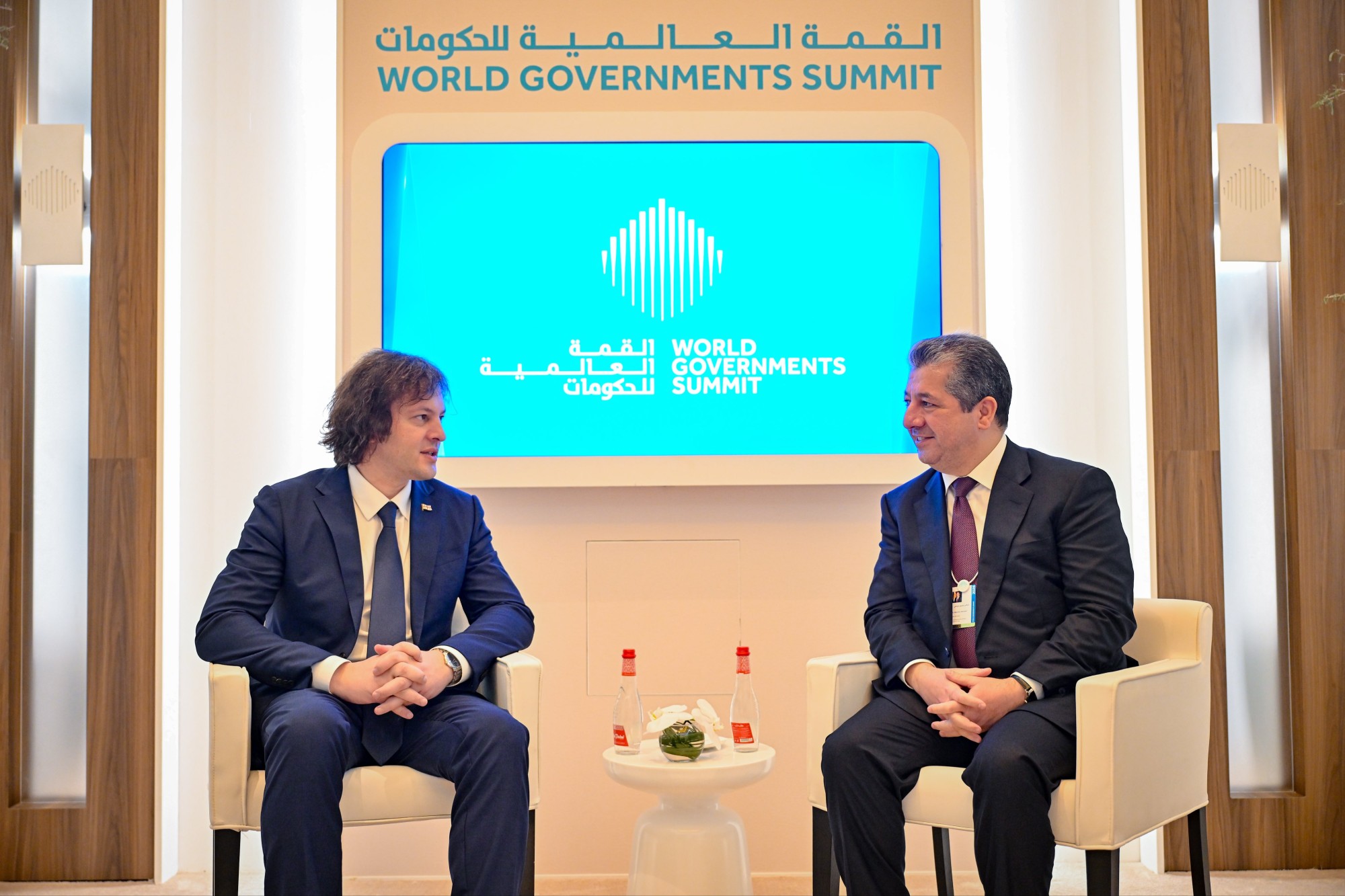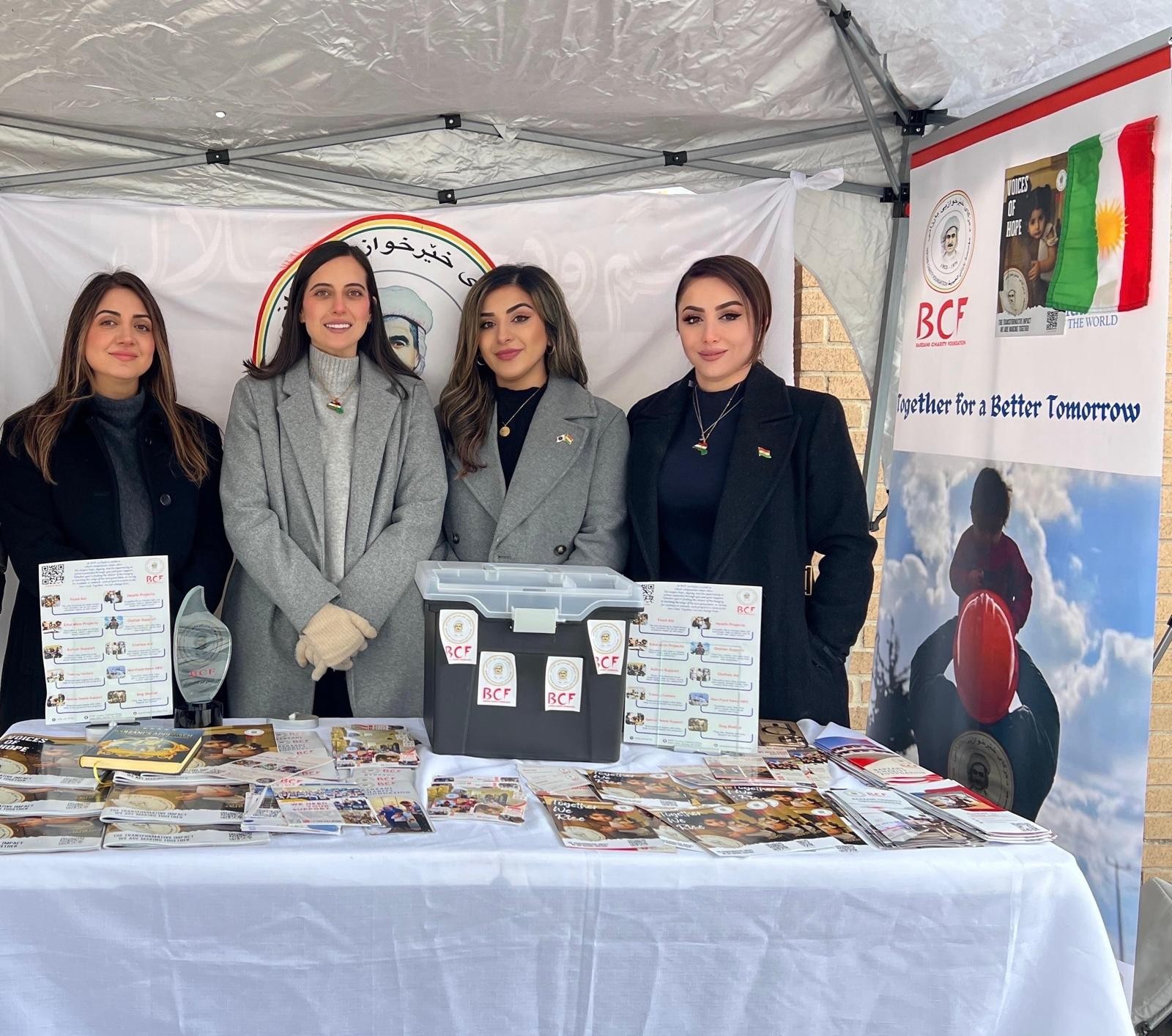Hemin Hawrami, former Deputy Speaker of the Kurdistan Region Parliament and a prominent member of the Kurdistan Democratic Party (KDP) recently addressed graduate students, scholars, and journalists at the School of International Service at American University (AU) in Washington, D.C. where he discussed the complex issues between the Iraqi government and the Kurdistan Regional Government (KRG). In addition to his talks, he also met with U.S. Congress members Mike Turner, Pat Harrigan, Scott Perry, and Abe Hamadeh, highlighting the Kurdistan Region’s vital role as a partner for stability and prosperity in the Middle East. Key discussions included the need for ongoing political, military, and economic support from the United States and the importance of congressional backing for the peshmerga forces. These conversations aimed to advocate for continued assistance to help the Kurdistan Region address challenges and strengthen its ties with the United States as a strategic ally.
The Iraqi government cut the federal budget and the salaries of Kurdish public sector employees 2014. Since then, financial disputes between Erbil and Baghdad have remained as the main challenge in their relations. In 2023 Iraq also suspended oil exports from the KRG, which was the KRG’s main source of income to pay its employees. Kurdish delegations have been traveling to Baghdad monthly to resolve these pending issues. Despite the KRG’s continuous efforts to negotiate with Baghdad, ordinary Kurdish citizens continue to bear the brunt of these challenges, particularly due to the government’s inability to pay salaries on time.
Privileged to hold a meeting at the White House and while we were there to greet and talk to @elonmusk briefly . pic.twitter.com/HnwAA0At4H
— Dr. Hemn Hawrami (@heminhawrami) February 14, 2025
Hawrami identified cultural centralism within the Baghdad government as a primary obstacle to a permanent resolution of issues between Iraq and the Kurdistan Region. He pointed out that the lack of implementation of federalism and compliance with constitutional articles undermines the rights of the Kurdish people. “We have 124 outstanding issues with Baghdad and 55 articles in the Iraqi Constitution that addressed federalism and resource allocation. However, the federal government either disregards them or fails to implement them” he said. “Simply put, they do not want Kurdistan to prosper. The culture of centralization does not respect the federalism outlined in the Iraqi constitution.”
He concluded by emphasizing that the United States has a significant role to play in bringing the Kurdistan Region and Iraq together. The U.S. legacy in Iraq is vital, and it is essential for the United States to re-engage with both Baghdad and Erbil. He stated that Iraq stands to lose considerably by not fostering a positive relationship with the Kurdistan Region, particularly in developing energy resources and addressing financial disparities stemming from the weaponization of federal courts against Kurdistan. “Iraq is losing a lot by not having a better relationship with the Kurdistan Region to jointly develop energy resources,” he explained. “For example, Iraq has lost $23 billion itself by denying the KRG from receiving $10 billion from the export of oil for the past two years.”
The Iraqi government has not changed its mentality regarding the Kurdistan Region, viewing it merely as part of its country. Hawrami highlighted that if someone asked him whether he identifies as Iraqi first or Kurdish first, he would respond, “I’m Kurdish first, because this identity of Iraqi-ness is what brought that identity for us. In order to be Iraqi, you have to be Shi’a Iraqi or Arab Iraqi, not Kurdish Iraqi. That identity does not offer equal rights as a citizen, as stipulated in the constitution.”
Hawrami gave a brief introduction about Iraq during the Sunni rule and how the Kurdish people suffered under the Ba’athist regime led by Saddam Hussein. The Kurdistan Region faced chemical bombings, forced migration, and genocide; 182,000 people were killed, and more than 4,000 villages were completely destroyed.
“Now, during the Shi’a governance in Iraq, there have been different forms of punishment against the Kurdish people, including budget cuts and the failure to send salaries to Kurdish employees,” he said. “We need to focus on political democratization, strengthening civil society, promoting public diplomacy, and increasing international investment in developing institutions. Any kind of support for Iraq should be conditional on ensuring that it benefits all regions equally. This is a long process; I can’t provide a simple solution, it requires significant effort, and that’s why we have been trying with this new constitution hoping it would change this mentality. However, the lack of good governance and engagement with the region, along with the centralization of power in Baghdad, complicates the recognition of Kurdish rights.”

